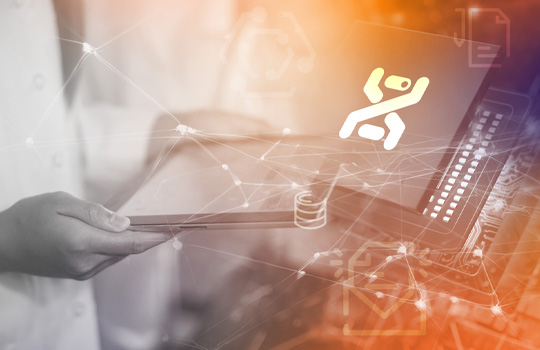AI Solutions

Simplifying and Scaling AI Translation Technologies
How AI-driven consolidation will catapult your global content initiatives.


Case Study: Multilingual Retail Marketing
New AI Content Creation Solutions for a Sports and Apparel Giant

- RESOURCES


Lionbridge has decades of experience handling clinical research translation, especially clinical outcome assessment localizations and clinical outcome assessment (COA) translations. Our experts cover key ways we support customers, whether it’s eCOA migration, eCOA implementation, linguistic validation, cognitive debriefing, or beyond.
Watch our video to get a deeper look at Lionbridge’s COA services. You’ll see our experts review common COA and eCOA questions and answers.
Read on to understand the key ways Lionbridge supports COA initiatives.
#1 Licensing for COAs
Lionbridge has a dedicated COA services team specializing in navigating copyrighted measures’ complexities. We manage the entire process, from initial negotiation to the final agreement, ensuring every step is legally compliant and ethically sound. We empower our customers to focus on core research and stop wasting time on paperwork.

#2 Linguistic Validation
Our life sciences localization team completes our linguistic validation process with native-speaking linguists who specialize in medical and clinical terminology. They can help check that translations are both accurate and culturally relevant. Our comprehensive steps include:
- Dual forward translation
- Back translation
- Harmonization
- Cognitive debriefing
Lionbridge implements a rigorous process to guarantee that clinical outcome assessments are equivalent to the original instrument, ensuring validity across all target languages. We also assure compliance with all major industry guidelines.
Additionally, Lionbridge utilizes our Aurora AI technology to optimize the translation process. This innovative AI in life sciences approach dramatically boosts efficiency and enhances patient comprehension. It also maintains regulatory standards.
#3 Cultural Adaptation
Lionbridge’s experts conduct cognitive debriefing interviews with patients from different demographic backgrounds within the therapeutic areas of interest. These interviews help confirm that wording is clear, culturally appropriate, and accurately conveys the intended meaning. Based on patient feedback, we refine translations to ensure they’re easily understood. For clinician-reported outcomes (ClinROs), we work with experienced clinicians in the relevant therapeutic areas to assure accuracy.
#4 Staying Updated on Industry Guidance
Lionbridge doesn’t just follow industry standards; we help shape them. Our team actively participates in key industry conferences like ISPOR. We frequently collaborate with regulatory bodies and working groups. We’re engaged with consortia that influence best practices in COA translation, linguistic validation, and eCOA. We align our methodologies with evolving industry needs so that we can provide the most updated and effective solutions in partnerships with eCOA providers, sponsors, and developers.

#5 COA, AI, and the Human in the Loop
AI translation is powerful but can’t fully replace human expertise in COA translation and linguistic validation. Lionbridge prioritizes a human-in-the-loop-driven approach. AI helps us automate repetitive tasks, ensure consistency, and provide intelligent solutions. However, expert human review remains critical to delivering high-quality translation.
Get in touch.
Seeking assistance on your clinical outcome assessment translations and localizations? Have linguistic validation or other life sciences translation needs? Let’s get in touch to discuss.



